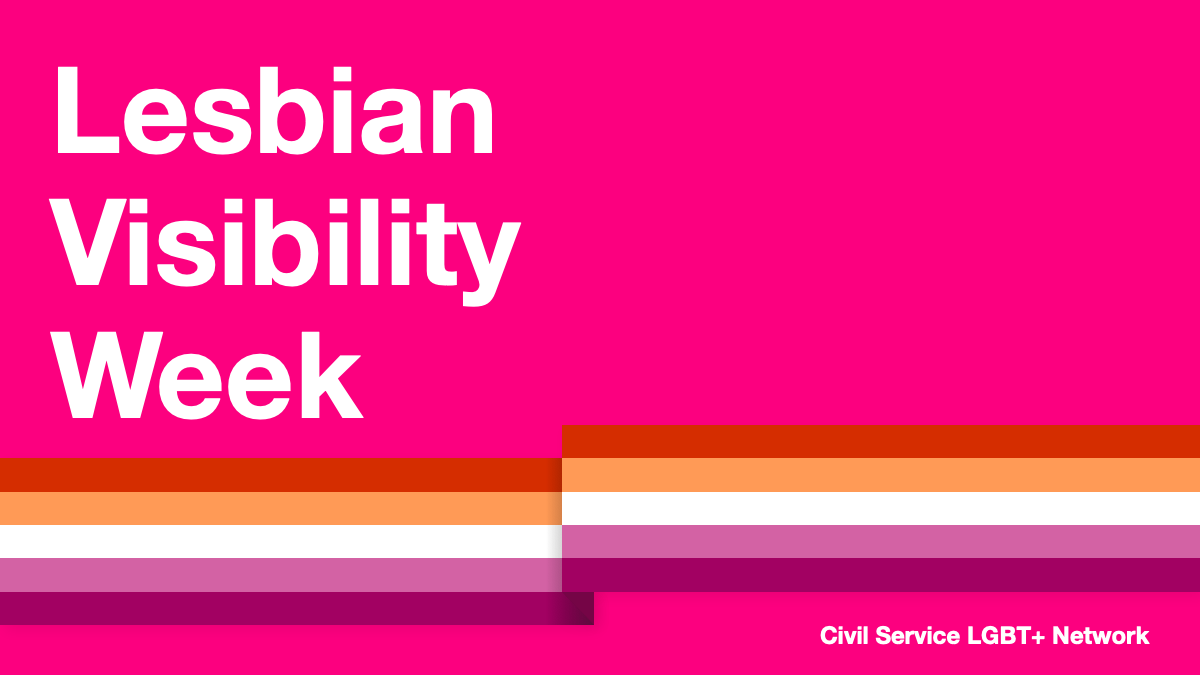A focus on gender-based violence this Lesbian Visibility Week
We're planning to produce guidance, with the input of LGBT+ civil servants, to help others to understand LGBT+ people’s experiences of gender-based violence.

Hello, I am Leah Cunnah, one of the vice-chairs. I lead on our work around allyship and women in the network. I want to do more to deliver resources and events for LGBT+ women to increase support and interest as well as to increase inclusion and diversity in the network.
As a cisgender and heterosexual women, I have felt fear walking home at night. I have carried keys between my fingers for protection. I have called home as I thought I was being followed. I have received inappropriate comments and stares.
The figures on physical, verbal and emotional violence against women are shocking, but they worsen and widen when we consider intersectional factors such as identifying as LGBT+. As well as women, I fear for people who are not cisgender or heterosexual. My concern is for my LGBT+ friends and colleagues.
LGBT+ people should be able to live their lives without fear of homophobia, biphobia or transphobia. Equally, people’s physical or mental wellbeing should not be at risk due to their gender identity or sexual orientation.
I worry for LGBT+ women, as the intersectionality of sex, sexuality and gender worsens and increases the inequality they face.
I worry for my trans and non-binary friends. As when someone transitions or presents in a non-binary way, they can lose male privileges and advantages, while gaining new oppressions and disadvantages.
I worry for LGBT+ men. Trans men do not have the same privileges as cisgender men, nor do gay or bisexual men have the same advantages as a heterosexual man.
I may feel safer as a woman within company rather than alone. However, my LGBT+ friends can feel scared both when they are alone and in company. They often can’t enjoy being with their same-sex partner or with a group of LGBT+ friends without fear of harassment.
I may feel safer in the daytime rather than night-time. However, my LGBT+ friends still face the risk of abuse in public and day light.
I can walk down the street holding my partners hand without a second thought. Many of my LGBT+ friends cannot do this without fear of attack.
I can feel safe and secure at home. For some of my LGBT+ friends they don’t even feel safe in their own homes. They can be at the risk of violence from their own friends, family members of partners.
Next steps
Many people who are not part of the LGBT+ community are not aware of these issues so the Civil Service LGBT+ Network wish to produce guidance to help others to understand LGBT+ people’s experiences of gender-based violence.
To start this project, we would like to invite LGBT+ women from across the Civil Service to join us Wednesday 28th April from 12.30 – 13.30 for a chance to talk about this topic and to get involved for Lesbian Visibility Week. Sign up details are available via our events page.
We will hold future workshop events to discuss gender-based violence to gain an insight into your experiences and to find out what you would like to see in the guidance. If you would like to get involved, then please contact us.